Growing the potential of planting baskets

Examples of fruit trees and food staples including avocado (Persea americana), pigeon peas (Cajanus cajan), and chipilin (Crotalaria longirostrata) that can be grown successfully in small backyards and raised containers by the “Gardens to Go” participants. Credit - Rudy Aguilar, BBG.
Gardens to go? Growing the potential of planting baskets for habitat restoration and climate-resilient livelihoods
During Covid-19, a botanical garden in Belize started offering landless families baskets of seedling plants to grow, to help them meet their basic needs for food security. What they learnt is now helping a Darwin Initiative Innovation project develop a method that provides smallholder farmers with the plants, training, and support they need to help restore habitat biodiversity, by growing a wider variety of native plants and trees better adapted to climate change.
In the Cayo District of western Belize, near to the border with Guatemala, forest areas surrounding the Selva Maya biodiversity hotspot are progressively eaten into as the agricultural frontier expands. Pressure to clear forest areas for subsistence growing increased rapidly during the pandemic, as many people who had previously worked in the tourist economy – which had contributed 40% of GDP – became unemployed and returned home to rural villages.
Nationwide, but especially in ethnic Mayan villages, poverty levels rose rapidly, with up to 80% of families struggling to feed themselves. In response, Judy Duplooy and her staff from the Belize Botanic Gardens (BBG), a 45-acre garden housing the county’s largest collection of native plants and exotic fruit trees, started offering baskets of plants which were easy and quick to grow, and could provide a ready source of nutrition.
Although these planting baskets, called ‘Gardens to Go’ were originally aimed at landless families, there was soon interest from smallholder farmers too, realising they needed to start growing a wider variety of crops to offer protection against failures due to the increasingly frequent droughts, and to conserve the soil that was being washed away in heavy rainstorms.
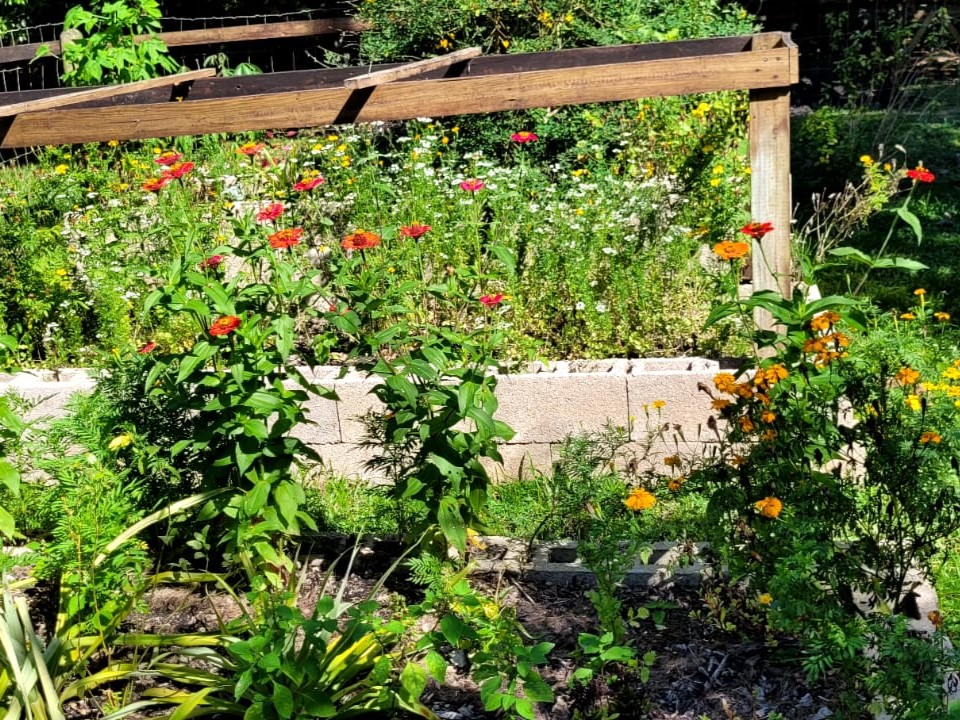
Like many botanical gardens around the world, BBG has considerable knowledge about seed collection, propagation, and the ex-situ conservation of biodiversity. Rudy Aguilar, Head Gardener, explains: “The gardens are a living reference collection and a source of seeds and plants for both local and exotic flora. But we are also a source of know-how about sustainable horticulture and organic growing; and we want to share that knowledge, so that farmers who are wanting to adapt, can begin growing more diverse and innovative combinations of plants and trees in agroforestry systems.”
Although the benefits of enriched agroforestry systems for food security, climate-resilience, and biodiversity gain are widely articulated, there are still challenges preventing farmers on the ground making the shift away from their traditional agricultural practices. For many, the risk of a leap into the unknown is great, especially when there are few local examples of success to follow.
Perhaps surprisingly, the majority of families who received the planting baskets from BBG during Covid-19 not only learnt to maintain their plants, but having been taught how to propagate them, have now expanded their production. “Providing the plants was just the start,” Rudy explains, “it was the continued support and training and also how they created their own peer support network, that seemed to really keep everyone motivated.”
Darwin Initiative’s Innovation projects focus on testing new approaches then scaling-up good ideas. So the current project, co-designed by BBG with the University of Edinburgh and the Royal Botanical Gardens Edinburgh, aims also to adapt the basic idea of the ‘planting basket’ for those who do have access to land; the many smallholder farmers who need to adapt their agriculture to the climate changes they see, but lack the initial resources and know-how to make this change by themselves.
Dr Neil Stuart, an academic based at the University of Edinburgh who co-devised the project, explains: “When we think about farming, having ‘all your eggs in one basket’ can be a risky strategy, if that one crop is affected by drought, pests, or falling prices. Belize has many native plants that are well adapted to the local climate, but not everyone knows how to grow them as well as the expert horticulturalists at BBG. In this project we will carry out growing trials, and set up a series of demonstration sites across Cayo District to showcase native plants that can be grown well. Smallholder farmers will be encouraged to grow a more mixed range of local plants for food, shelter, and with the possibility to sell any surplus.”
Building on the successful ‘Gardens to Go’ model, a further cohort of landless families will receive starter baskets of plants, as well as training in organic growing, pest control, and propagation. Both smallholder farmers and landless participants will have access to these resources, including residential training and remote support.
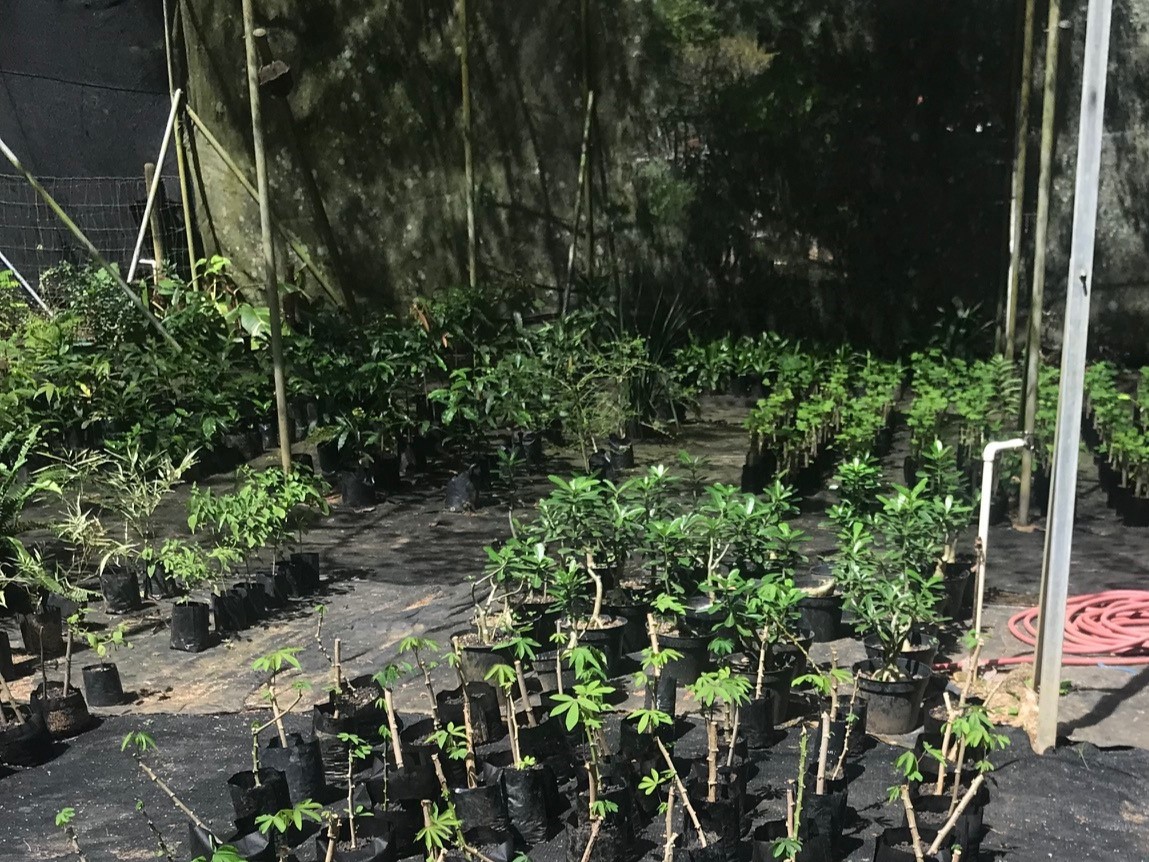
During Covid-19, BBG produced a television series that was widely watched throughout the country, which encouraged many more people to start growing at home. As part of the new project, a new series will be filmed to promote awareness of local native plants, how these can be grown, and their uses in cooking local dishes.
Agriculture is often portrayed as a threat to biodiversity. This project seeks to offer evidence to the contrary. Duncan Macqueen, Head of Forestry at the International Institute for Environment and Development, explains: “We all need to eat, and we all need to make a living; this project is about thinking how smallholder agriculture can be part of a plan for restoring biodiversity to some of these degraded landscapes, and giving individuals incentives to do this.”
Dr Zoë Goodwin, a taxonomist from the Royal Botanic Garden Edinburgh who worked closely with BBG to design baskets of plants to promote native growing, explains that, “By including some endangered trees and plants in these baskets of plants, we can give farmers reasons to grow more endangered species, which helps to restore biodiversity to these landscapes.”
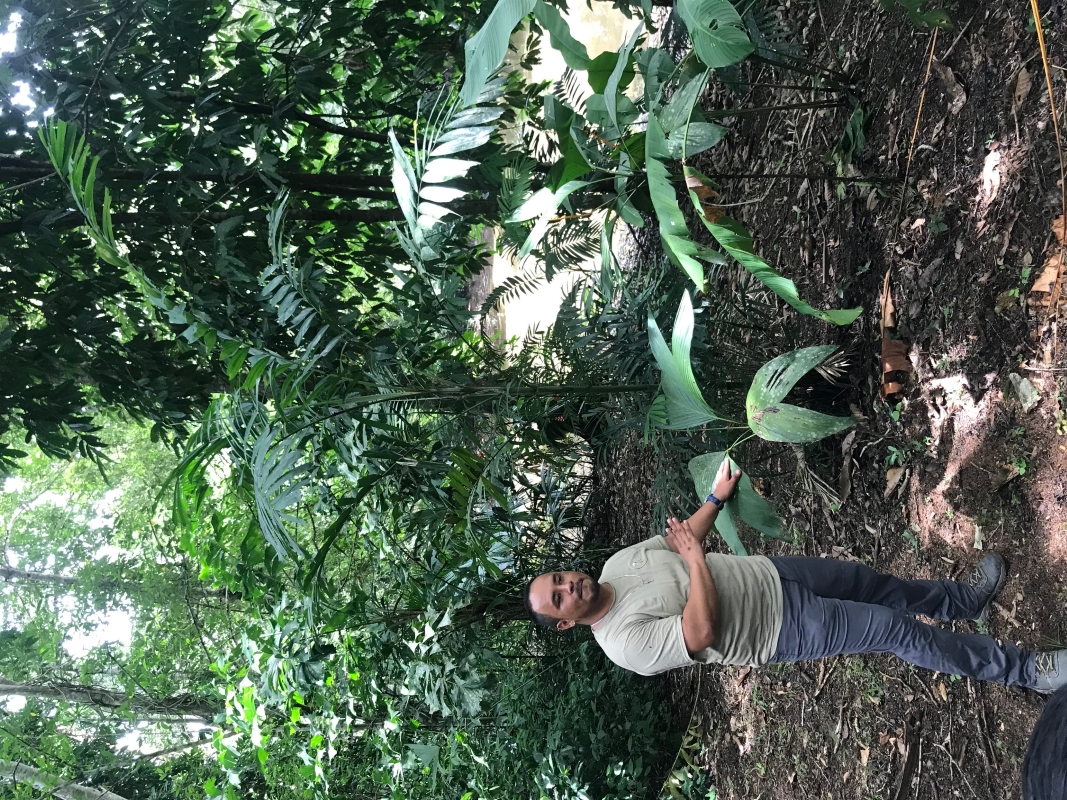
The project will be implemented with a consortium of local partners, including the NGOs Friends for Conservation and Development (FCD), and the Belize Maya Forest Trust, co-managers of two protected areas who are committed to giving communities living within or depending on these areas a just and sustainable livelihood. As the second only example of agriculture being permitted within a forest reserve in Belize, FCD’s rangers will support and protect farmers who are practicing sustainable agro-forestry practices within the Vaca Forest Reserve. The project aims to provide evidence to the Government Forest Department of how smallholder farmers may be encouraged towards more sustainable practices that reduce deforestation and assist with the objectives of the 2022 National Forest Restoration policy.
The project will also have a strong educational component, with universities, colleges, and schools in different parts of Belize planning to take over the long-term maintenance of the demonstration agro-forestry gardens, established by BBG. Denaie Swasey explains, “Galen’s partnership with BBG will enable our students to attain first-hand knowledge of national initiatives for Forest Conservation and Management, including plant identification, forest restoration, and agroforestry. The program further enhances the knowledge and skill base of our Environmental Science students to better serve the country as environmental advocates.”
Although this Innovation project only runs until March 2024, the demonstration gardens will continue to grow and be maintained and monitored as a long-term educational resource. Evidence from the planting and growing trials will be widely shared and used to inform the government’s national forest restoration strategy. The methods and ways of working can be replicated elsewhere, firstly across Belize, Guatemala, and Honduras as part of Defra’s Biodiverse Landscape Fund project for Meso-America.
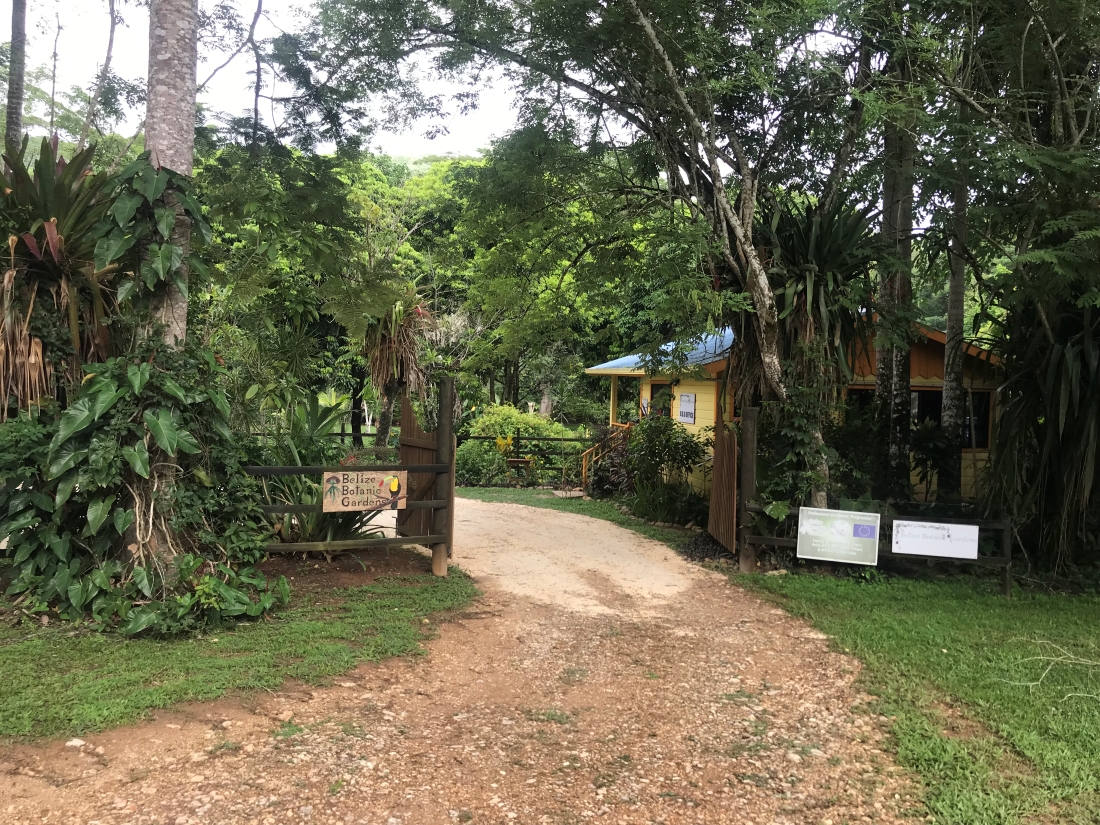
To watch an introductory video about the project, click here.
Written by Neil Stuart. For more information on this Darwin Initiative Innovation project DARNV020, led by the University of Edinburgh, please click here and here.
 Back
Back